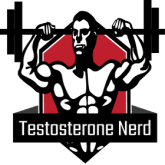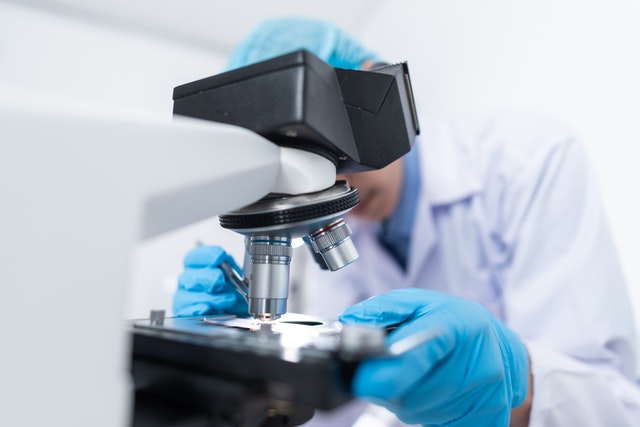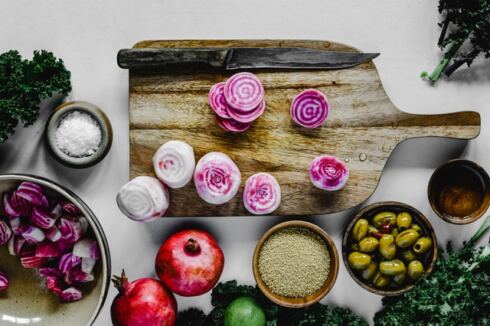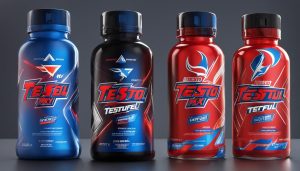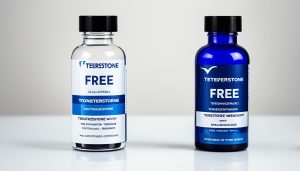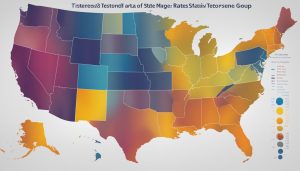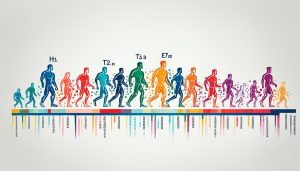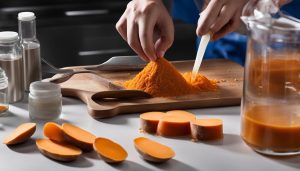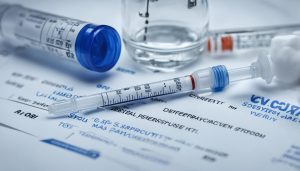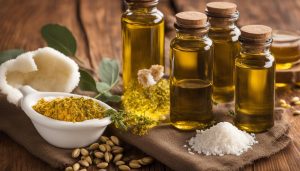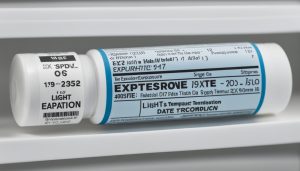Are you looking to boost your testosterone levels naturally? Testofuel and Testo Max are two popular testosterone boosters in the market. But which one is the better option for you? Let’s dive into a detailed comparison of these two supplements to find out. When it comes to testosterone enhancement, there are countless products claiming...
Read MoreYour Ultimate Resource for Everything Testosterone!
You deserve optimal testosterone levels and we are here to make sure you get them.
Browse Our Content By
Who We Are
Hi, my name is Simeon Slavchev and I’m the founder and editor-in-chief at TestosteroNerd.com. My aim? Simple. To go through all relevant research and scientific data so that you have access to the most relevant, helpful and easy-to-digest information to boost your testosterone levels naturally… and more!
For this, I’ll use my professional experience and academic background. I hold a PhD degree in Public Health and 2 Master’s degrees (Public Health and Public Health Management, Strategic Management in the Pharmaceutical Industry), I work as a full-time assistant professor at a preventative medicine department. I have over 10 scientific publications in renowned medical journals – feel free to check my Google Scholar profile.
Check Our Latest Posts
Low Testosterone Statistics in European Men: Key Insights
As European men’s hormonal health has become a growing concern, understanding the prevalence and impact of low testosterone is essential for healthcare professionals and individuals alike. By exploring the data and studies related to low testosterone in Europe, we can gain a better understanding of the challenges faced by men in maintaining optimal hormonal...
Read MoreMagnesium’s Role in Testosterone Enhancement
Explore how Magnesium plays a crucial role in boosting testosterone levels and maintaining hormone balance for optimal health.
Read MoreBoost Testosterone with Push-Ups: Find Out How Many
Testosterone is a vital hormone that plays a crucial role in muscle growth, mood regulation, and energy levels. Many individuals turn to supplements or hormone therapy to boost their testosterone levels, but did you know that a simple exercise like push-ups can have a significant impact on your testosterone production? Now, you might be...
Read MoreWhey Protein & Testosterone: Fact or Myth?
Did you know that whey protein is the most popular protein supplement among fitness enthusiasts and bodybuilders? It’s known for its ability to promote muscle building and aid in exercise recovery. But here’s the surprising part: there is a common belief that whey protein can actually boost testosterone levels, a hormone crucial for muscle...
Read MoreDoes Shilajit Boost Testosterone? Unveiling Facts
Does Shilajit Boost Testosterone? Unveiling Facts Shilajit’s Historical Use in Ayurvedic Medicine Shilajit has a long history of use in Ayurvedic medicine, dating back over 3,000 years. It is derived from sedimentary mountain rocks and has been highly valued for its potential health benefits. In Ayurvedic tradition, shilajit is often referred to as the...
Read MoreUnderstanding Testosterone vs Free Testosterone
Hello, and welcome to my article on understanding the difference between testosterone and free testosterone. Testosterone and free testosterone are two important hormones that play a significant role in our bodies. By understanding the distinction between these hormones, we can gain insights into their effects on hormonal balance and overall health. Testosterone is a...
Read MoreEssential Low Testosterone Statistics for Different Demographics in the US
As a journalist specializing in healthcare, I have had the opportunity to delve into various topics that impact the well-being of individuals. One such topic that has gained significant attention in recent years is low testosterone, a condition that can affect individuals across different demographics in the United States. Understanding the prevalence, factors, and...
Read MoreKey Testosterone Facts and Statistics Unveiled
Testosterone is a hormone that plays a crucial role in numerous functions within the body, impacting both males and females. In this article, I will uncover key testosterone facts and statistics, providing valuable insights into its levels, deficiency symptoms, therapy options, and more. Understanding testosterone is vital for making informed decisions about our health...
Read MoreUnlock Ashwagandha Benefits for Health & Wellness
Hello, I’m excited to share with you the incredible benefits of ashwagandha, a powerful medicinal herb that has been used for centuries in Ayurvedic medicine. As more and more people are discovering its potential, ashwagandha is gaining popularity in the Western world as a natural remedy for various health issues, offering a holistic approach...
Read MoreHarnessing Testosterone for Entrepreneurial Success
Testosterone is a powerful hormone that fuels entrepreneurial drive and contributes to entrepreneurial success. As an entrepreneur, I understand the impact that testosterone has on motivation, determination, and the ability to take risks. It’s the driving force behind my passion and ambition to achieve my business goals. When testosterone levels are high, entrepreneurs experience...
Read MoreBalancing Testosterone for Better Impulse Control
Testosterone, a hormone that plays a crucial role in aggression and dominance, has also been linked to impulse control. Studies have found that an imbalance in testosterone levels can affect an individual’s ability to regulate their impulses and control impulsive behavior. For example, higher testosterone levels have been associated with increased impulsivity and risk-taking...
Read MoreCoconut Oil Benefits for Men: Top Health Gains
Coconut oil is not just a kitchen staple; it also offers a myriad of health benefits for men. From skincare to weight loss, this natural remedy promotes a healthy lifestyle and overall wellness. When it comes to skincare, coconut oil works wonders. It moisturizes the skin, reduces dryness, and can even help with certain...
Read MoreAre Bananas Good for Men? Nutritional Benefits
As a man, I’m always looking for ways to improve my health and well-being. So, when I heard about the potential benefits of bananas for men, I had to find out more. And let me tell you, I was pleasantly surprised. Bananas aren’t just a delicious and convenient snack; they also pack a powerful...
Read MoreArnold Schwarzenegger’s Workout Routine Explained
Hello everyone, it’s me again, your friendly fitness enthusiast. Today, I want to dive into the legendary workout routine of one of the most iconic figures in bodybuilding history – Arnold Schwarzenegger. Known for his incredible physique and numerous Mr. Olympia titles, Arnold’s fitness routine is still revered in the world of bodybuilding and...
Read MoreUnveiling the Process: How Testosterone Is Made from Yams
Have you ever wondered how testosterone, the hormone that plays a crucial role in male reproductive health, is produced? Surprisingly, the answer lies in a humble plant – yams. Yes, those starchy, delicious tubers that we enjoy in various culinary creations have a hidden talent for testosterone synthesis. In recent years, researchers have discovered...
Read MoreCan Testosterone Shots Reverse a Vasectomy?
When it comes to vasectomy reversal, many individuals have questions about the effectiveness of testosterone shots as a potential solution. Research suggests that testosterone therapy may indeed have the ability to reverse a vasectomy to some extent. In studies, testosterone shots have been shown to suppress the hypothalamic-pituitary-gonadal axis, resulting in the inhibition of...
Read MoreSea Moss Benefits: Boost Testosterone Levels?
Sea moss, also known as Irish sea moss, is a type of red algae that has gained popularity for its numerous health benefits, especially for men. Packed with vitamins, minerals, and antioxidants, sea moss can improve overall health and well-being. In this section, I will explore the benefits of sea moss for men, with...
Read MoreCottonseed Oil Allergy & Testosterone Impact
Hello, readers! Today, I want to discuss an important topic that affects many individuals: cottonseed oil allergies and their impact on testosterone levels and hormone regulation. Allergic reactions to cottonseed oil can have significant repercussions on our overall health, so it’s essential to understand the risks and manage them effectively. When individuals experience allergic...
Read MoreCan Testosterone Make Your Hair Curly? Find Out!
As a male health expert, I often come across fascinating questions related to hormones and their effects on various aspects of our bodies. One query that frequently arises is whether testosterone can make your hair curly. It’s a compelling topic that resonates with both men and women, as hair texture plays a significant role...
Read MoreUnopened Testosterone Vial Shelf Life Guide
As a journalist specializing in healthcare, I understand the importance of proper storage and usage of medications. Today, I want to shed light on the shelf life of unopened testosterone vials. Testosterone vials are commonly used in hormone replacement therapy (HRT) to treat testosterone deficiency. Their potency and effectiveness can be affected by various...
Read MoreTestosterone Therapy Benefits for Men Over 50
As men age, their testosterone levels naturally decline, leading to various changes in their physical and emotional well-being. Testosterone therapy, also known as testosterone replacement therapy or hormone replacement therapy, is an effective anti-aging treatment that can provide numerous benefits for men over 50. Studies have shown that testosterone therapy can improve energy levels,...
Read MoreTestosterone in Grape Seed Oil: Benefits Explored
I am always intrigued by natural remedies that have the potential to support testosterone levels. One such remedy that has gained attention is grape seed oil. Research suggests that grape seed oil may have various benefits for testosterone production and overall men’s health. Testosterone is a vital hormone that plays a crucial role in...
Read MoreTestosterone Therapy’s Impact on Divorce Rates
When it comes to marriage and relationship dynamics, many factors can influence the overall satisfaction and longevity of a partnership. One such factor that has gained attention in recent years is testosterone levels in men and the potential impact of testosterone replacement therapy (TRT) on divorce rates. Testosterone replacement therapy has become a popular...
Read MoreFAQs
Testosterone is a sex hormone that plays multiple important roles in the body, such as development of the penis and testes, deepening of the voice during puberty, appearance of facial and pubic hair starting at puberty, muscle size and strength, bone growth and strength, sex drive (libido), and sperm production [1].
Testosterone has several benefits such as increased muscle mass, improved bone density, enhanced libido, improved mood, and increased energy levels [2].
Symptoms of low testosterone include decreased sex drive, erectile dysfunction, fatigue, loss of muscle mass, decreased bone density, and mood changes [3].
The causes of low testosterone include aging, injury or infection to the testicles, chemotherapy or radiation treatment for cancer, chronic illness, obesity or extreme weight loss [4].
Low testosterone is diagnosed through a blood test that measures the amount of testosterone in your blood [5].
Treatment options for low testosterone include testosterone replacement therapy (TRT), lifestyle changes such as weight loss and exercise, and medication to treat underlying conditions [6].
Side effects of TRT include acne or oily skin, mild fluid retention, breast enlargement (gynecomastia), worsening sleep apnea, decreased testicular size and infertility.
Yes. Women need testosterone too but in much smaller amounts than men. Testosterone therapy can help women with low libido or other symptoms related to menopause.
Yes. High levels of testosterone can cause acne or oily skin, mood swings or irritability, aggression or violence, sleep apnea or other breathing problems during sleep.
No. Masturbation does not affect testosterone levels in any significant way.
